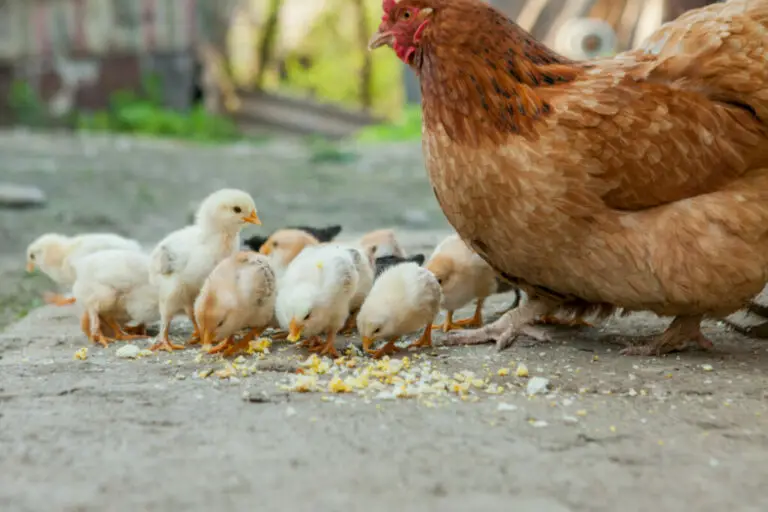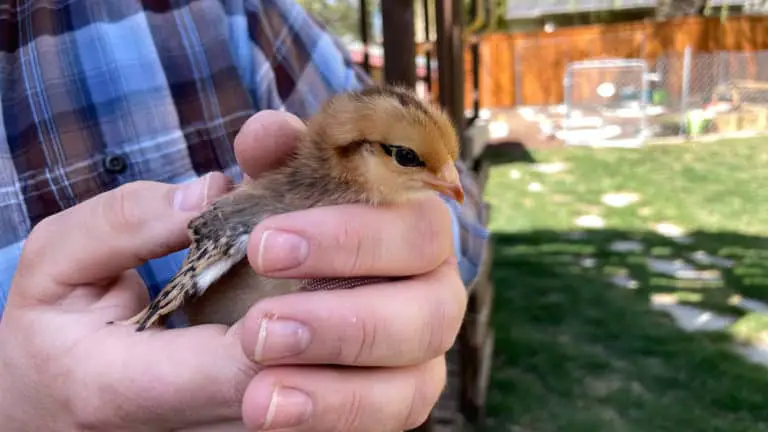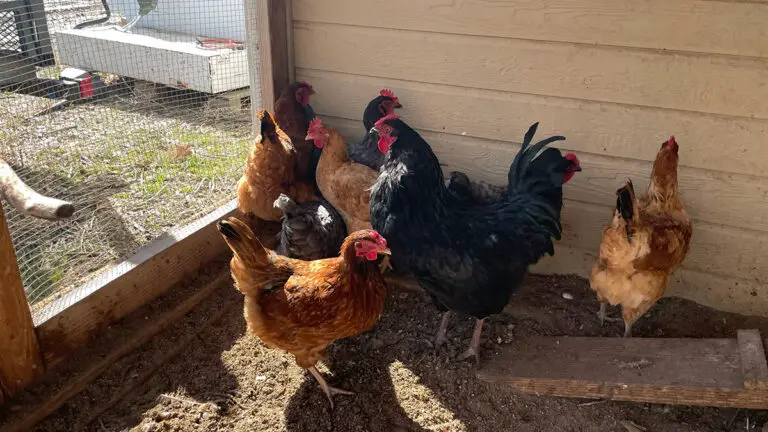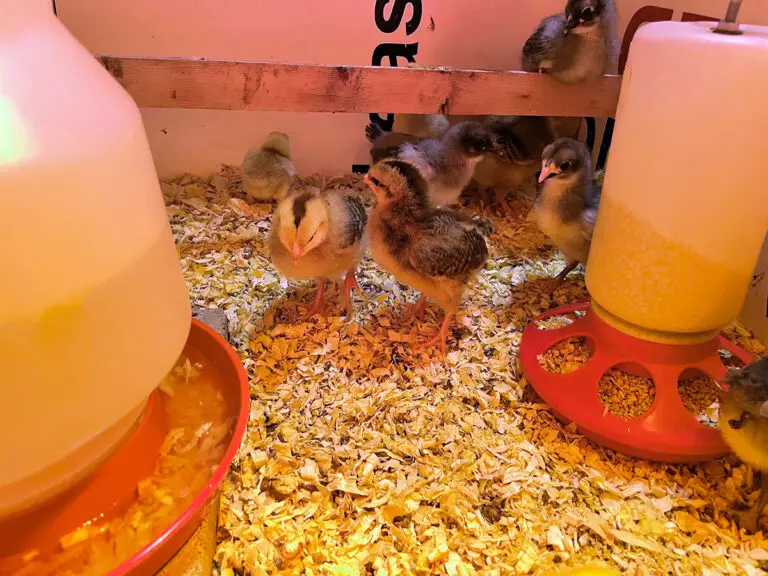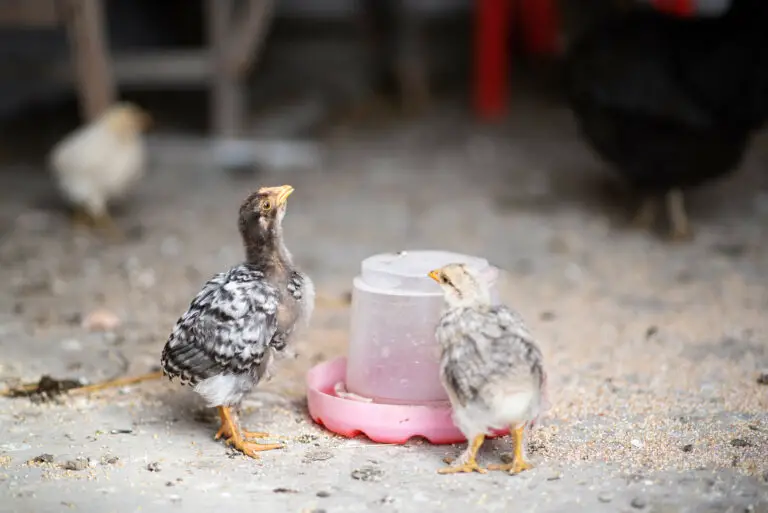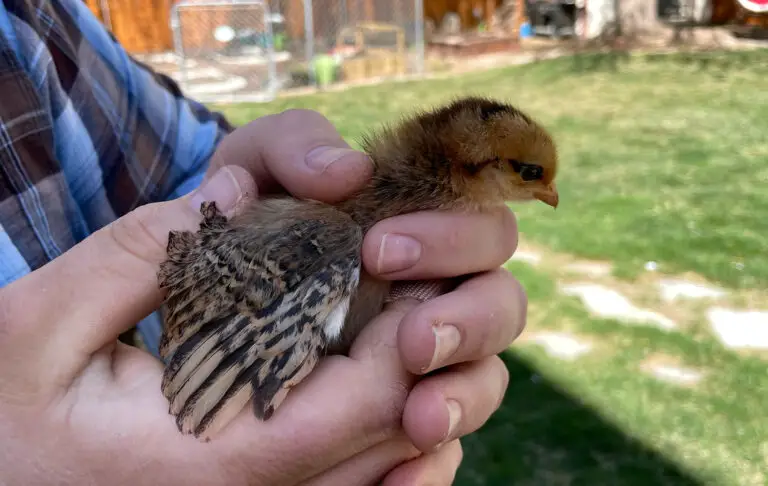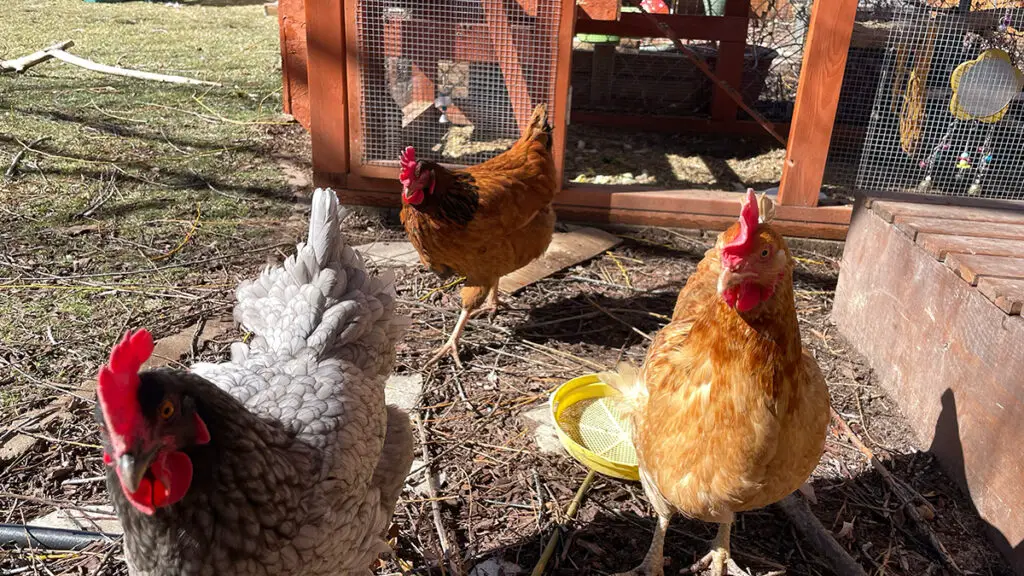
Have you ever wondered if having a chicken as a pet would be a good idea? Chickens are marvelous creatures that are unique and caring. Chickens are just as clever as human toddlers in the grand scheme of things.
Chickens can be good pets because they are easy to maintain, friendly, and eat scraps as food. Some breeds, like cochins or brahmas are good options for pets, while some are not as suitable because they aren’t as friendly. Chickens only need bedding, food, nesting boxes, feeders, a chicken coop, and grit to thrive so they are really low maintenance.
Here are the reasons that a chicken might be either perfect or not-so-perfect as your pet.
Chickens as Useful Pets
Chickens can be great pets, but most owners only hope to benefit from the utility of chickens. If you were wondering if a chicken would be good as just a pet and nothing else, you may be disappointed. Many owners buy chickens for the reason that these animals are useful.
Supplies and Space for Pet Chickens
Chickens need the proper feed and bedding for their space. They need to start out in a brooding box, and as they grow they’ll graduate to a full chicken coop. Chickens also do best when they have space to walk around and enjoy doing so in groups, so it can be worthwhile to let them walk around in a contained backyard.
A chicken coop should have some kind of roof to give chickens somewhere to go during wet or cold weather.
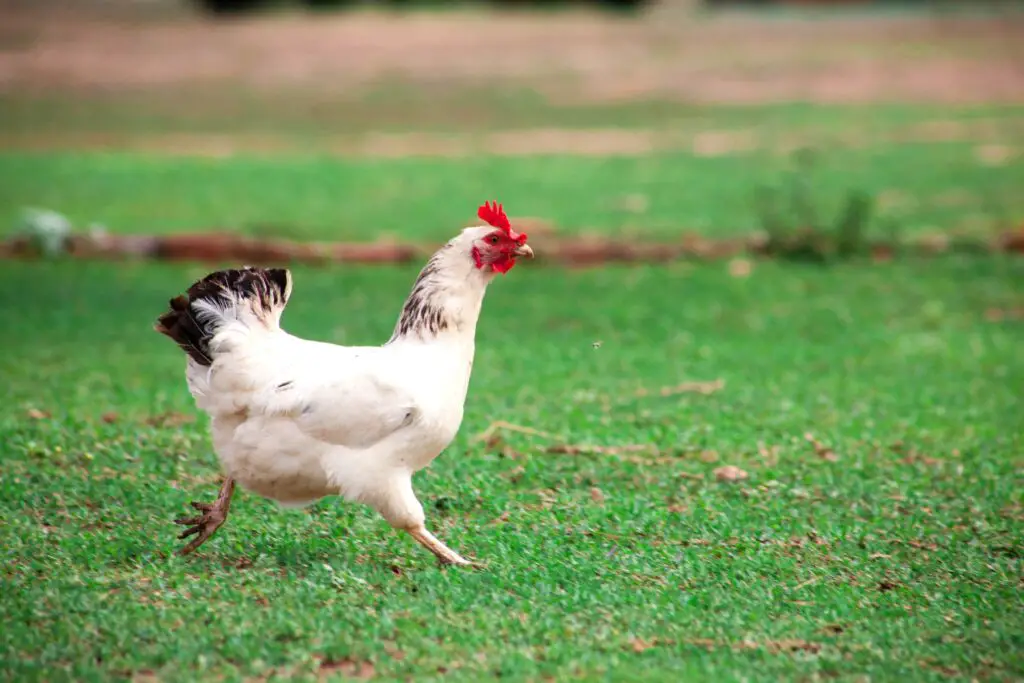
Chickens as Social Group Pets
Chickens thrive best when there are other chickens to keep them company, and they will be happier and more sociable if they are bought and raised in groups.
At least three chickens are highly recommended for a flock. It’s the minimum to keep all of them entertained and to keep each other warm on cold days. Chickens will often establish a hierarchy in their group and usually are not welcoming to new members, so plan to get all of your chickens at one time.
Should You Get a Rooster to go with Your Chickens?
Roosters tend to be a lot less friendly than hens, so for most people who want chickens as pets, I would not recommend keeping a rooster. However, there are 2 reasons you might want a rooster.
- Roosters are great for protecting hens from predators. They get incredibly defensive and are more likely to fend off at least the smaller predators.
- Roosters are necessary for fertilizing eggs. This only matters if you want to get more chicks from your eggs. So if you don’t want to hatch your own chicks, you probably don’t want a rooster.
Roosters usually end up at the top of the hierarchy or pecking order when put in a group of chickens and hens. Having more than one rooster in a flock will lead to fighting and if one is significantly larger than the other, the smaller one may not survive.
If you’re considering getting a rooster, you’ll need to check with your state, county, city, and even neighborhood rules and laws to make sure you’re allowed to. There are restrictions on roosters, and even all chickens, in some areas due to noise complaints for loud or early morning crowing.
Some chicken owners will keep their roosters in night boxes during early or late hours or even put a rooster collar on their pets to prevent them from crowing as loudly, but this is discouraged since it greatly decreases a rooster’s well-being and happiness.
Cost Breakdowns
Baby chicks only cost a few dollars to buy most of the time. But they will require more supplies to raise from a very young age.
While chickens cost between $3 to $30, most adult chickens will cost $10 or more most of the time. Coops on the other hand cost more, anywhere from $200 to as much as $4,000 depending on how large or fancy the coop is. The cost to keep chickens can be anywhere from about $5 to $30 a piece depending on what feed you five them and what other supplies you decide to get.
Tips on Raising Chickens and Things to Keep in Mind
Remember that chickens aren’t as smart as dogs or cats, so no matter how much effort is put into it, you probably won’t be able to teach them to do tricks. Chickens prefer roaming around a yard and socializing with each other more than anything else.
As someone who is a chicken herder, chickens will respond to you when you want to lead them. They’ll often follow you in the direction of where you are going with their eyes, but remember that these birds do not have very good eyesight. That’s why they’ll even peck at your shoes because they think they’re food.
If you wave an object or a finger toward a chicken, it’ll probably try to peck at it. Some chickens will allow you to hold them, and sometimes they won’t, depending on the breed but also depending on how much you handle them.
The more you handle your chickens, the more they’ll allow and even want you to handle them. Start holding your birds when they’re chicks. Even just 30-60 seconds of holding and light petting down their back will get them accustomed to people and will improve their temperament when they’re mature.
Some young kids might be startled by normal chicken behavior. Just remember that the chicken is not out to hurt them and frankly, a chicken peck is startling but not painful. Our kids ranging from 3-11 love our chickens but had to learn how to interact with them early on.
Another tip, remember you don’t need an expensive or fancy coop for raising chickens. Just make sure they’re protected from predators and keep their space as natural and clean as possible to keep them happy!
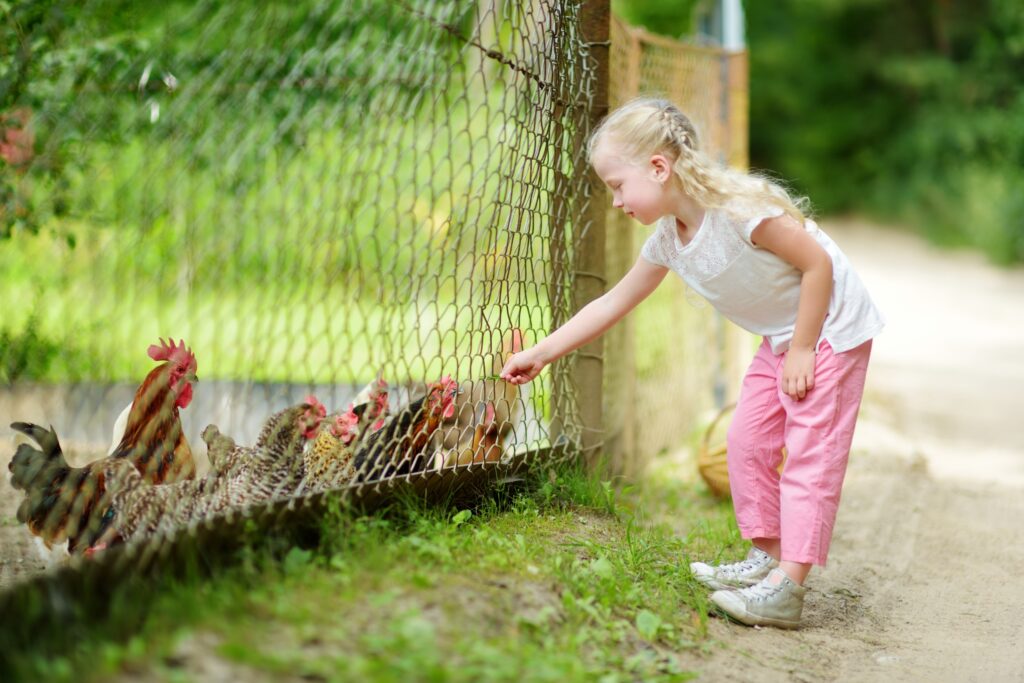
Benefits of Having Chickens as Pets
Several reasons back up why chickens would make excellent pets. Chickens make good pets when you have a big enough yard, as well as a garden as a bonus. Chickens will work hard to manage pests that may get into your garden and save your plants. Just be careful not to let them also eat your plants…
Our chickens forage through the garden a ton from the fall through the spring, but once plants start to sprout, we have them forage in other areas.
Chickens are fantastic at eliminating food waste. When you want to throw away food scraps left over from dinner, you can just give them to the chickens to eat. Make sure the food given to them isn’t too spicy or moldy. For mature chickens, most table scraps are okay.
Here I have an article talking about things that are great to feed to your chickens and other foods that you should avoid.
Chickens are good for children. Pets have a lot of benefits for kids. My 11-year-old son has learned a lot of responsibility from having to help with the chickens, and all of my children down to 3 years old have come to really love our chickens. Pet ownership can help children have improved autonomy, self-control, and responsibility than non-pet-owners.
Disadvantages of Having Chickens as Pets
Predators can often get in the way of raising chickens. They are more prone than other types of turkey flocks due to their size. Common predators include but are not limited to coyotes, foxes, bobcats, weasels, birds of prey, raccoons, skunks, large rodents, and snakes.
I’ve found that my chickens are great that chasing off squirrels though, and the neighborhood cat seems leery of getting too close.
In order to prevent these predators, make sure your coop and run are large and strong enough to prevent these predators from getting in.
Best Chicken Breeds to Keep as Pets
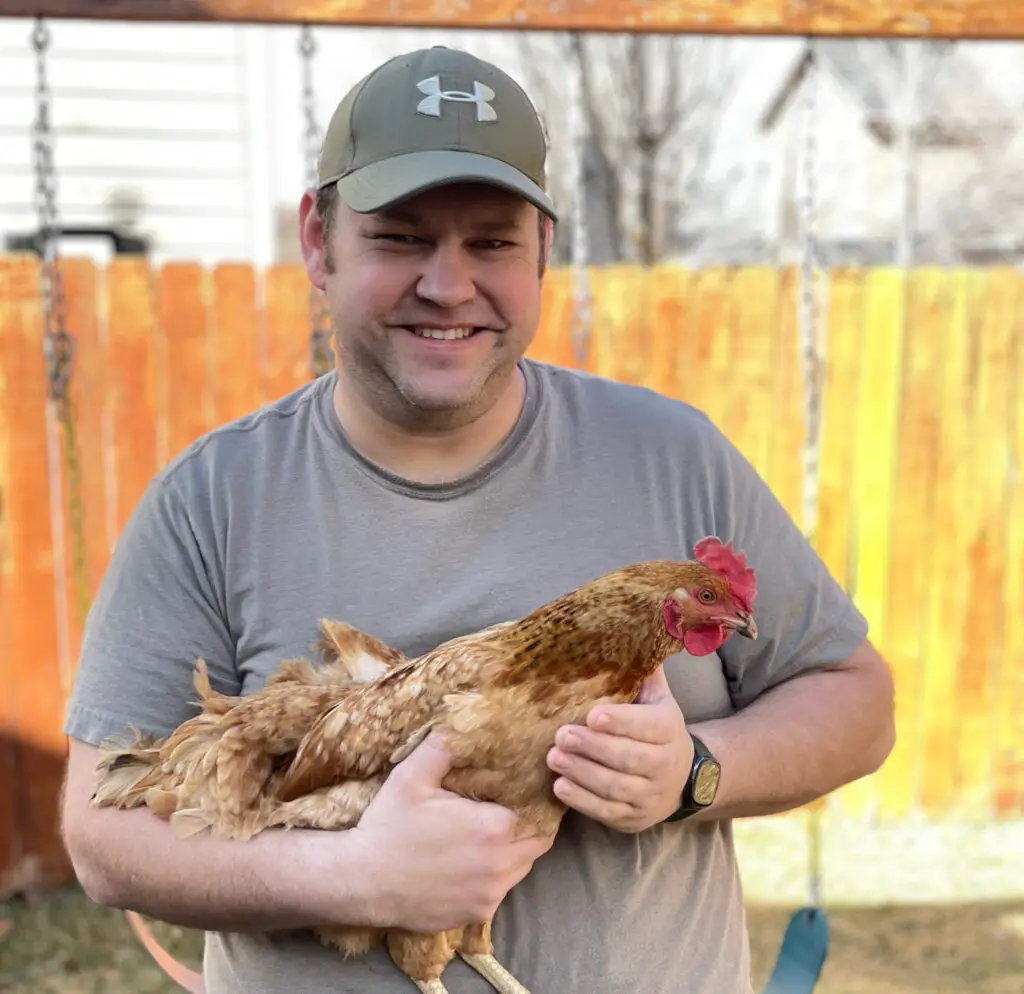
Some chicken breeds are better than others when it comes to owning chickens as pets. We have some hybrid chickens that are really pretty and lay an egg almost every day and they’re super friendly. We’ve been surprised how attached we’ve grown to our girls.
It’s even funny that when we open the back door to the house, they all perk up and when they’re outside, they come running.
The following are some of the best listed from best to worst in order of friendliness.
1. Buff Orpingtons
Orpingtons provide great benefits to pet owners. They are large, friendly, quiet, and loyal in nature. They have a golden buff color with lots of soft feathers which make them look puffier. They are better suited than some others for colder climates. Buff is the most popular choice because they are hardier and healthier than industrial hybrids of chickens.
2. Cochin
Cochin chickens are visually pleasing to many with their round, and fluffy bodies. They are very sweet and calm in nature. These chickens come in large and small sizes depending on what kind of chicken you choose. Cochins usually love people. They are not afraid to come close to you, or even sit on your lap. This kind of chicken goes broody many times and are fantastic mothers. They will lay around 3-5 medium-sized light brown eggs each week.
3. Brahma
Brahma chickens are very nice pets to have because of their calm and caring personalities. These are usually large in size and have big feathers and feet as well as small pea combs for protection against frostbite. They come in the color varieties such as black and white, or grey and brown feathers for a lighter look.
You can expect around 5-6 large brown eggs each week from Brahmas.
4. Polish
Polish chickens look more unique than other types of chickens. They often have large poofs of feathers on their heads and beards. These are mostly friendly and quiet but will peck at your feet just because they think it is food. Chickens have really poor vision…
A few times in the year owners will cut the feathers on the top of their heads to make it easier for them to see. Polish chickens aren’t the best at laying eggs unfortunately but you can expect around 2-3 small to medium-sized white eggs per week.
5. Silkies
Silkies are mini chickens with fluffy, fur-like feathers that make them seem like a cat more than a chicken. The feathered feet, legs, and crests make them unique and really pretty.
Overall, these chickens are very friendly. When this chicken lays, you can expect around 3-4 small eggs each week if you do it right. Silkies come in various colors such as white, black, brown, blue, and partridge mixes. These are a great option if you’ a’re looking for a pet.
Here’s a list with a few more breeds from another helpful blogger.

